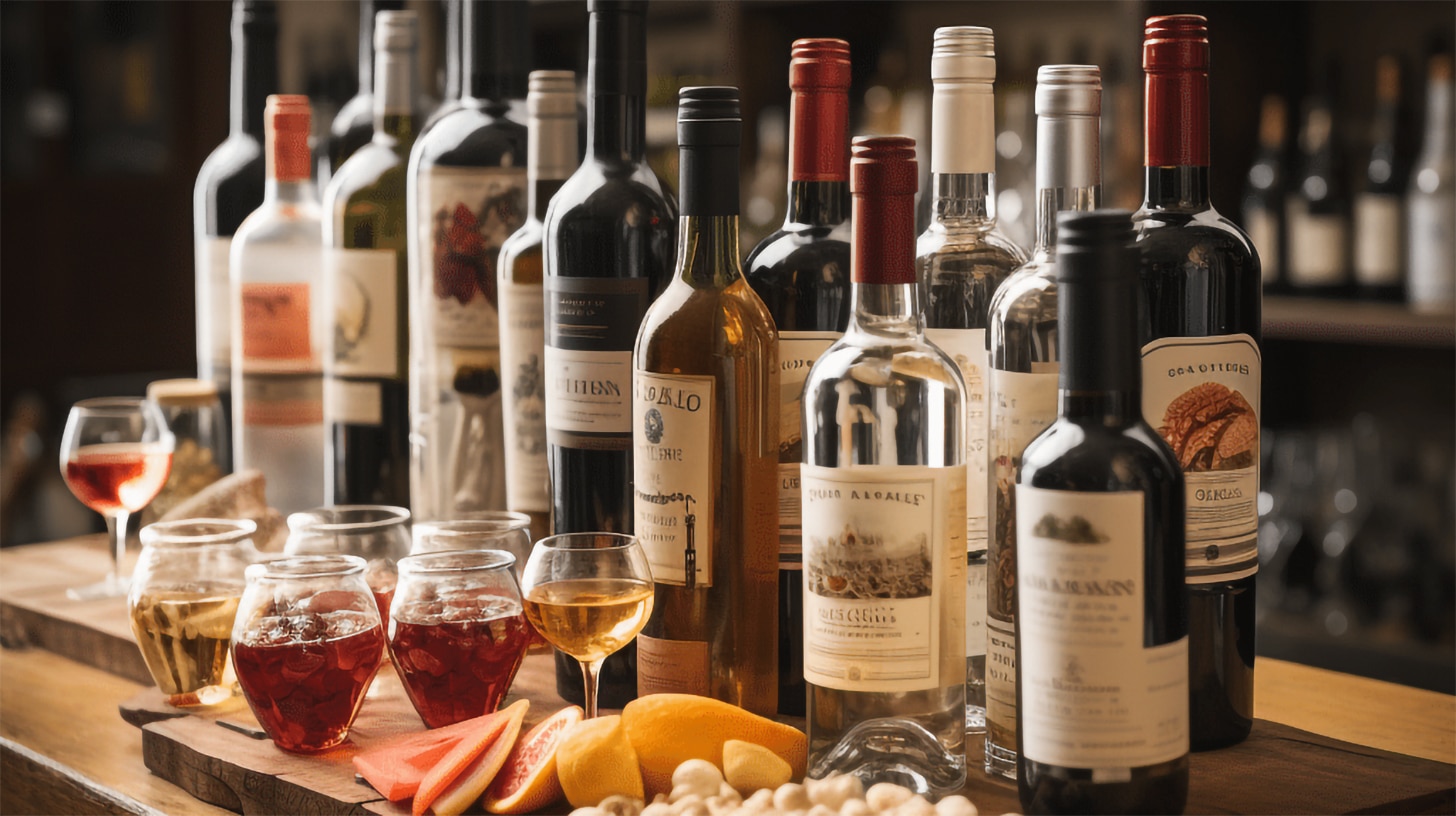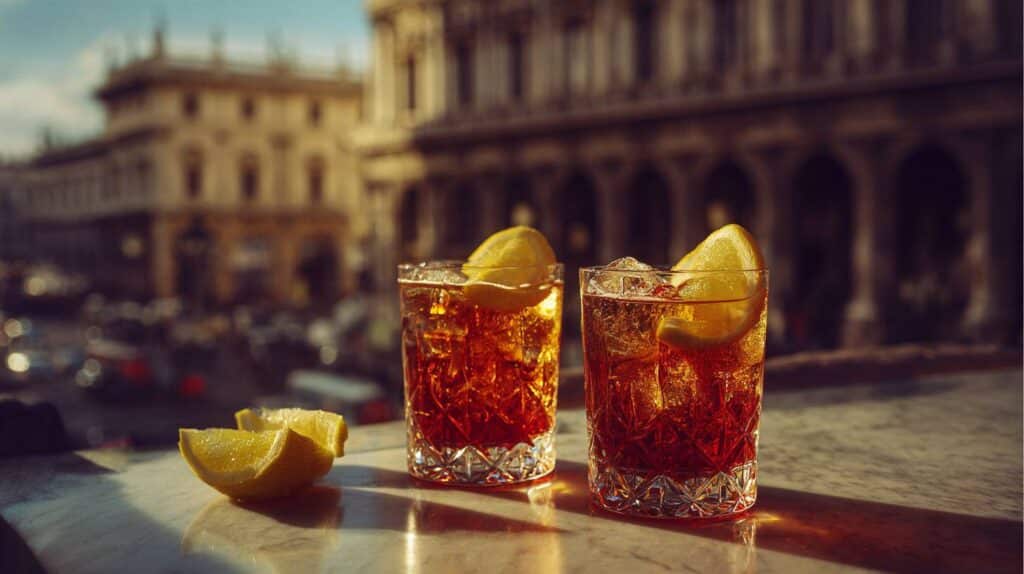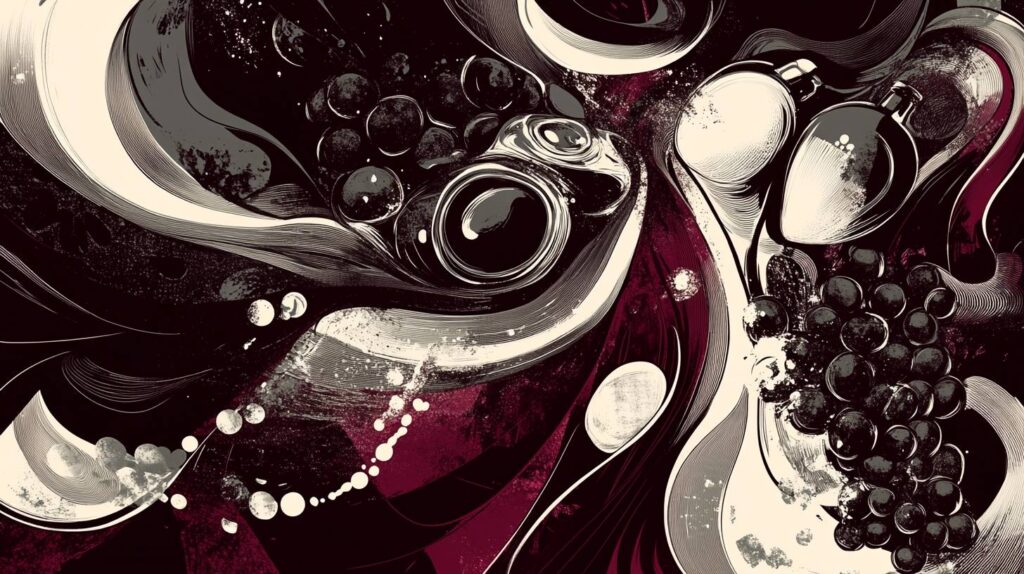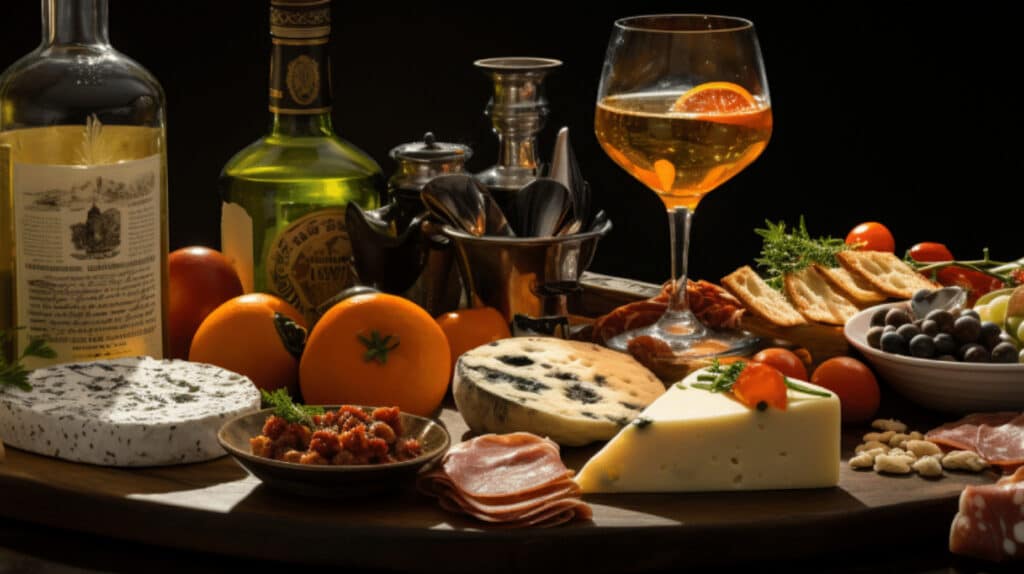Are you tired of using the same old wines in your cocktails? Do you want to impress your guests with unique and flavorful drinks? Look no further, as we dive into the world of vermouth alternative wines and how they can elevate your cocktails. Discover new flavors and techniques to take your mixology skills to the next level.
1. Sparkling Wine
Selecting the right sparkling wine for your cocktails is essential to achieving the perfect balance of flavors. Here are some steps to consider:
- Choose the right type of sparkling wine. Options include Champagne, Prosecco, Cava, and sparkling wines from different regions.
- Consider the sweetness level. Sparkling wines can range from bone-dry to very sweet, so choose one that complements your cocktail recipe.
- Think about the acidity. Sparkling wines with higher acidity can provide a refreshing and crisp element to your cocktails, but are not the ideal vermouth alternatives.
- Experiment with different flavors. Some sparkling wines have fruity or floral notes that can enhance the taste of your cocktails.
- Consider the price point. There are sparkling wines available at various price ranges, so choose one that fits your budget without compromising on quality.
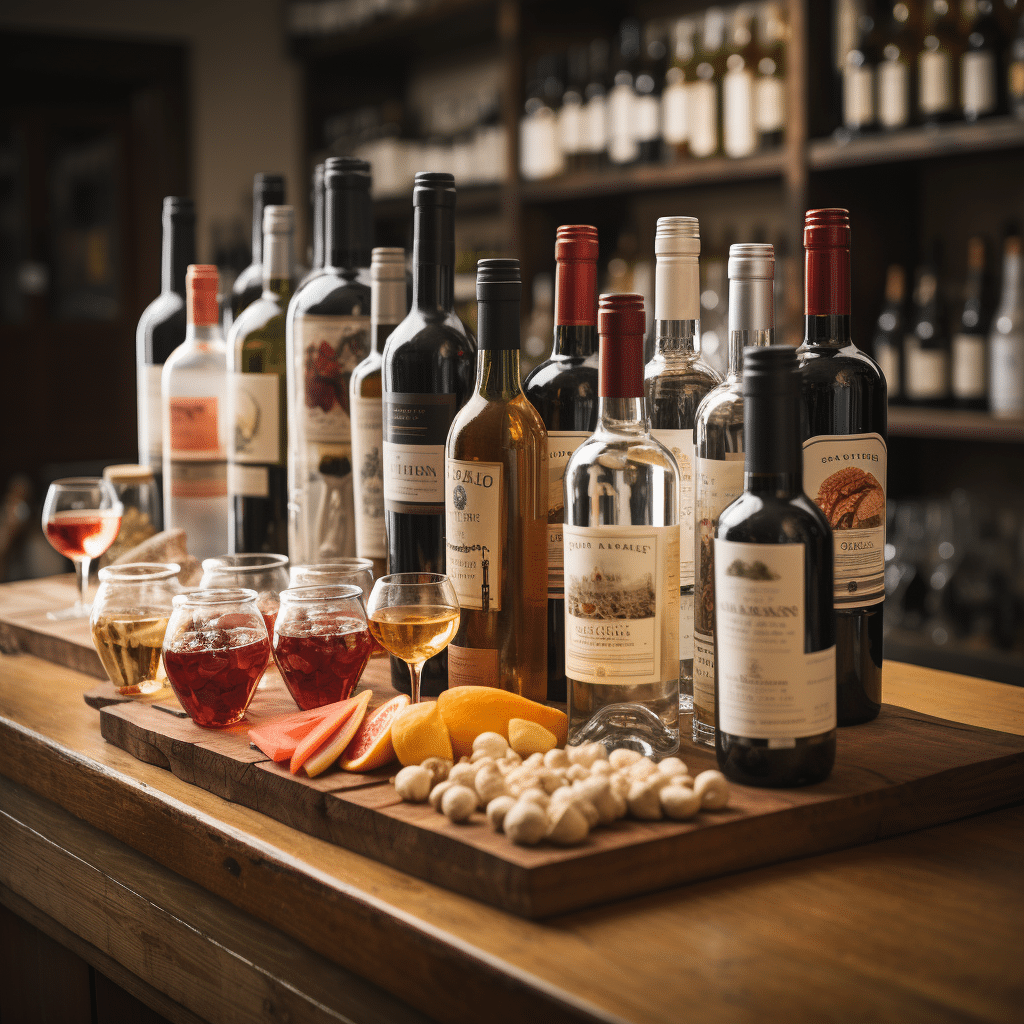
Sparkling wine has a rich history that dates back to the 17th century. Its creation is often attributed to Dom Pérignon, a French monk who accidentally discovered the effervescence in wine. Since then, sparkling wine has become a beloved choice for celebrations and cocktail creations worldwide.
2. Rosé Wine
When it comes to cocktails, rosé wine is a versatile vermouth alternative. Its light and refreshing flavors make it perfect for a variety of mixed drinks. Whether you want to make a fruity sangria or a refreshing spritzer, rosé wine can add a delightful twist. Its pink hue also adds a visually appealing element to your cocktails. To enhance the flavors of your rosé wine cocktails, try experimenting with fresh fruits or herbs. So, the next time you’re planning a get-together or looking to switch up your usual drink, consider using rosé wine as the base for your cocktails.
3. Fortified Wine
Fortified wines are a category of wines that have a higher alcohol content due to the addition of a distilled spirit, usually brandy. They are excellent vermouth alternatives and are known for their rich flavors and longer shelf life. Here are three popular types of fortified wines:
| Port | Sherry | Madeira |
| Originated in Portugal | Originated in Spain | Originated in Portugal |
| Rich, sweet, and full-bodied | Dry or sweet, with nutty flavors | Range from dry to sweet, with caramel notes |
| Pair well with chocolate or cheese | Pair well with tapas or soups | Pair well with desserts or roasted meats |
4. Sherry
Sherry is a versatile wine that can add unique flavors to your cocktails. Here are five steps to incorporate sherry into your drink recipes:
- Add a splash of sherry to a classic cocktail like a Manhattan or Martini for a subtle nutty flavor.
- Create a sherry-based cocktail by combining sherry, citrus juice, simple syrup, and a splash of soda water.
- Use sherry as a vermouth alternative in cocktails like the Negroni or the Boulevardier.
- Experiment with different styles of sherry, such as Fino or Amontillado, to find the perfect flavor profile for your cocktails.
- Consider garnishing your sherry cocktails with a twist of citrus peel or a sprinkle of aromatic spices for added complexity.
5. Port
Port is a fortified wine that originated in Portugal. It is renowned for its rich, sweet flavor and higher alcohol content. Often served as a dessert wine, it is also a popular choice for adding depth and complexity to cocktails. Its versatility makes it an ideal ingredient for mixing with other spirits and ingredients.
A helpful tip for using port in cocktails is to consider substituting it for other sweet liqueurs or vermouths to create unique and delicious flavor profiles. By experimenting with various combinations, you can discover delightful and unexpected cocktail creations.
6. Madeira
Madeira wine is a versatile and unique option vermouth alternative for adding depth and complexity to cocktails. Here are seven steps to incorporate Madeira into your drink creations:

- Choose the right type of Madeira, such as Sercial for a dry flavor or Bual for a sweeter profile.
- Consider the cocktail recipe and select a Madeira that complements the other ingredients.
- Experiment with different ratios of Madeira to spirits or mixers to find the perfect balance.
- Add Madeira as a substitute for other fortified wines, like sherry or vermouth, to add a distinct character to your cocktails.
- Use Madeira as a base for a unique cocktail by combining it with fresh fruit juices or herbs.
- Consider the age of the Madeira – younger wines are more vibrant and fruity, while older wines offer richer flavors.
- Experiment with different serving styles, such as serving Madeira neat, on the rocks, or in a cocktail glass.
7. Marsala
Marsala is a versatile vermouth alternative from Sicily, Italy, that is often used in cooking and cocktails. Its rich amber color and complex flavor profile make it a popular ingredient in various cocktails. Marsala pairs well with ingredients such as chocolate, coffee, and dried fruits.
Some of the most popular Marsala cocktails include:
- Marsala Spritz
- Marsala Margarita
Additionally, Marsala is an excellent base for dessert cocktails like the Marsala Flip.
Fun fact: Marsala is classified into different categories based on its aging process, ranging from Oro (1 year) to Vergine (5 years or more).
8. Sake
True story: During a trip to Japan, I had the opportunity to visit a small sake brewery in Kyoto. The owner shared the rich history and meticulous craftsmanship that goes into making sake. I was amazed by the intricate process and the dedication of the brewers. Tasting freshly brewed sake straight from the fermentation tanks was an unforgettable experience, and it deepened my appreciation for this traditional Japanese beverage.
- Understand the basics: Learn about the different types of sake, such as Junmai, Ginjo, and Daiginjo.
- Consider food pairing: Sake pairs well with various cuisines, including sushi, tempura, and grilled meats.
- Temperature matters: Experiment with serving temperatures to enhance the flavors of sake.
- Explore different styles: Try Nigori sake for a creamy and sweet taste, or aged sake for a complex flavor profile.
- Visit a sake brewery: Take a tour to learn about the brewing process and gain a deeper appreciation for sake.
- Experiment with cocktails: Use sake as a base for unique and refreshing vermouth alternative cocktails.
- Try sake tasting flights: Compare different sakes to discover your preferences.
- Store sake properly: Keep it in a cool, dark place away from direct sunlight.
- Support local producers: Look for sake made by local breweries to support small businesses and taste unique flavors.
9. Ice Wine
Ice wine is a one-of-a-kind and luxurious dessert wine. Crafted from grapes that have been frozen on the vine, it is renowned for its intense sweetness and concentrated flavors. With its lively acidity and velvety texture, ice wine is a delightful addition to any cocktail. Its adaptability allows it to be incorporated into a variety of mixed drinks, including ice wine martinis or ice wine spritzers. The unique flavors of ice wine, such as honey, apricot, and tropical fruits, can bring depth and complexity to your cocktails. Consider experimenting with ice wine to elevate your next cocktail experience.
What Are the Benefits of Using VErmouth Alternative in Cocktails?
Incorporating alternative wines into cocktails offers numerous advantages that can elevate your drinking experience. Firstly, these wines, such as fruit wines or meads, bring distinct and intriguing flavors and aromas to cocktails, adding diversity to the taste profile. Secondly, they are often produced by smaller, artisanal producers, supporting local businesses and promoting sustainability. Lastly, utilizing alternative wines allows for experimentation and creativity, empowering bartenders to craft innovative and captivating cocktails that stand out from the traditional options.
Embracing alternative wines in cocktails opens up a world of possibilities for both bartenders and drinkers alike.
In a similar vein, let’s delve into a true historical example that showcases the benefits of alternative wines in cocktails. During the Prohibition era in the United States, when the production and sale of alcoholic beverages were prohibited, many individuals turned to alternative wines to make their illicit cocktails. These inventive blends, often utilizing homemade fruit wines and moonshine, not only allowed people to indulge in their favorite mixed drinks, but also sparked the creation of new and unique cocktail recipes. This era of experimentation laid the groundwork for the vibrant cocktail culture that we continue to savor today.
How Do Different Types of Wine Affect the Flavor of Cocktails?
Different types of wine can greatly influence the flavor profiles of cocktails, enhancing or altering their taste in various ways. Here are a few examples of how different wines can impact the flavors of cocktails: was a unique and unforgettable cocktail that perfectly showcased how different types of wine can elevate the flavor experience in cocktails.

- Wine as a base: Using wine as a base adds depth and complexity to cocktails, with each type contributing its own unique characteristics.
- Flavor infusion: Wine can infuse cocktails with fruity, floral, or herbaceous flavors, depending on the specific varietal used.
- Balance and acidity: Wines with high acidity, such as Sauvignon Blanc, can provide a refreshing and tart element to cocktails, representing an original vermouth wine alternative.
- Texture and mouthfeel: Full-bodied wines, like Cabernet Sauvignon, can add richness and viscosity to cocktails.
- Sweetness and sweetness balance: Sweet wines, like Moscato, can add a touch of sweetness, while dry wines help balance out the sweetness from other ingredients.
True story: In a wine cocktail competition, a mixologist used a bold and spicy Shiraz wine to create a cocktail called “The Fiery Tempest,” which combined the wine’s rich flavors with a kick of chili-infused simple syrup. A vermouth bar must!
What Are Some Popular Cocktails That Use Alternative Wines?
Alternative wines are commonly incorporated into cocktails to add unique flavors and characteristics. Some popular cocktails that utilize alternative wines include:
- Kir Royale: This classic French cocktail combines crème de cassis with Champagne or sparkling wine.
- Sangria: A refreshing and fruity drink made with red or white wine, mixed with fresh fruit, and often sweetened with a touch of sugar or fruit juice.
- Negroni Sbagliato: A variation of the classic Negroni, this cocktail replaces gin with sparkling wine, resulting in a lighter and bubbly version.
- Port Cobbler: A deliciously sweet cocktail made with port wine, sugar, and fresh fruit, typically served over crushed ice.
- Spritz: A popular Italian cocktail made with sparkling wine, Aperol or Campari, and soda water.
Fun Fact: Incorporating alternative wines into cocktails not only introduces new flavors but also adds depth and complexity to the drink, elevating the overall drinking experience.
How Can You Incorporate Vermouth Alternative Wines into Your Home Bar?
Looking to elevate your cocktail game? Consider incorporating alternative wines into your home bar! Here are some steps to help you get started:
- Research: Expand your knowledge on different types of alternative wines and their unique flavors.
- Experiment: Get creative and try out various cocktail recipes that incorporate alternative wines.
- Stock Up: Purchase a variety of alternative wines that suit your taste and the cocktails you want to make.
- Accessorize: Enhance your cocktail experience by investing in necessary bar tools and glassware.
- Showcase: Display your collection of alternative wines and bar accessories in an organized and visually appealing manner.
- Host Tastings: Invite friends over to try your innovative cocktails made with alternative wines.
- Continued Learning: Stay updated on new trends and recipes involving alternative wines.
What Are the Best Food Pairings for Cocktails Made with Alternative Wines?
When it comes to pairing cocktails made with alternative wines, the key is to complement the flavors of both the wine and the food. Here are some examples of the best food pairings for cocktails made with alternative wines:
- Sparkling Wine: Pair it with light appetizers like fresh oysters or shrimp cocktail.
- Rosé Wine: It goes well with salads, grilled vegetables, or light pasta dishes.
- Fortified Wine: Cheese and charcuterie boards are a perfect match for fortified wines like Port or Sherry.
- Vermouth: Enjoy it with salty snacks like olives or nuts.
- Sake: Sushi and sashimi are classic pairings for this Japanese rice wine.
- Ice Wine: Pair it with rich desserts like cheesecake or crème brûlée.
These food pairings will enhance the flavors of your cocktails and create a delightful dining experience.
Are There Any Health Benefits to Using Alternative Wines in Cocktails?
While cocktails are often enjoyed for their taste and social aspect, there may also be some health benefits to incorporating vermouth alternative wines into them. For example, red wine contains antioxidants that can support heart health and potentially lower the risk of certain diseases. Similarly, white wine may have some advantages, such as improving lung function and potentially reducing the risk of certain types of cancer. However, it is important to consume alcohol in moderation and be mindful of the added sugar and calories in cocktail mixers.
Ultimately, while there may be some health benefits to using alternative wines in cocktails, it is crucial to prioritize moderation and maintain a balanced approach.
What Are Some Tips for Choosing the Right Alternative Wine for Your Cocktail?
When choosing an alternative wine for your cocktail, keep these tips in mind to ensure a harmonious flavor profile:
- Complement flavors: Select a wine that enhances the flavors of the other ingredients in the cocktail.
- Balance acidity: Consider the acidity levels of both the wine and the cocktail and how they will interact.
- Experiment: Don’t be afraid to try new combinations of vermouth alternatives and explore different varieties of wine.
- Consider sweetness: Match the sweetness of the wine with the sweetness of the cocktail, or vice versa.
- Research: Educate yourself on the characteristics of different wines to make an informed decision.
Here’s a true story: A mixologist experimented with a citrusy cocktail and chose a dry Riesling as an alternative wine. The wine’s acidity and floral notes perfectly complemented the cocktail’s flavors, resulting in a refreshing and well-balanced drink.

